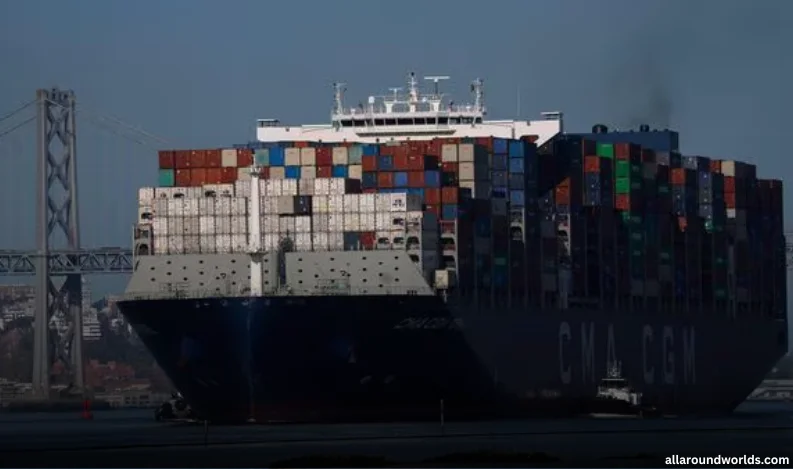
WTO Warns: Escalating U.S.–China Trade War Could Severely Damage Global Economy
The World Trade Organization (WTO) has issued a stark warning over the escalating trade tensions between the United States and China, cautioning that continued tariff warfare between the world’s two largest economies could have dire global consequences—particularly for the world's most vulnerable nations.
Speaking from Geneva on Thursday, WTO Director-General Ngozi Okonjo-Iweala said the deepening rift between Washington and Beijing represents a “substantial risk” to global economic stability, given that their bilateral trade accounts for nearly 3% of total global trade.
High Stakes in a Widening Trade Rift
The remarks follow a dramatic escalation in trade measures from both nations. The U.S. recently slapped a 125% tariff on Chinese imports, prompting Beijing to retaliate with an 84% levy on U.S. goods.
“This tit-for-tat approach between the world’s two largest economies carries wider implications that could severely damage the global economic outlook,” Okonjo-Iweala stated. “Our assessments, informed by the latest developments, highlight the substantial risks associated with further escalation.”
According to the WTO, while both nations are likely to experience domestic disruptions due to higher import costs and suppressed demand, the reverberations will not be confined to the U.S. and China. Low-income countries and least developed economies, many of which are deeply integrated into the global supply chain, are particularly vulnerable.
Ripple Effects Beyond Borders
Trade analysts emphasize that an extended trade conflict could destabilize global markets, weaken investor confidence, and complicate monetary policy decisions across continents. The most immediate effects may be seen in commodity markets, exchange rates, and export-dependent economies, particularly those in Asia, Africa, and Latin America.
“Disruptions to U.S.–China trade don’t exist in isolation,” said Rajiv Mehrotra, a trade economist based in New Delhi. “They distort shipping lanes, reorder supply chains, and create uncertainty for every business that depends on predictable global trade flows.”
WTO Urges Dialogue and Cooperation
The WTO chief emphasized that the 166-member body must serve as a platform for dialogue and resolution, stressing the importance of multilateral cooperation over unilateral retaliation.
“We urge both governments to return to the negotiating table and use the WTO as a forum for finding balanced, rules-based solutions. The costs of continued confrontation are too great to ignore,” she said.
WTO officials have confirmed that preliminary talks are being encouraged through backchannel diplomacy, though no formal sessions between U.S. and Chinese trade representatives are currently scheduled.
India May Find Opportunity Amid the Tensions
While the economic risks are real, some experts suggest that India could benefit in the short term from the trade fallout. With tariffs creating cost hurdles for traditional trading routes, Indian exporters may find new market opportunities in both the U.S. and China, particularly in sectors like textiles, electronics, pharmaceuticals, and agro-products.
“There’s a window of opportunity here for India,” said Anita Sharma, Director at the Federation of Indian Export Organisations (FIEO). “Both the U.S. and China may look for alternative sourcing partners to mitigate tariff impacts, and India is well-positioned in several categories.”
However, she cautioned that the opportunity must be balanced with preparedness and speed. “Trade realignment takes time and strategic planning. Without coordinated government support and trade facilitation, India could miss the chance to scale up.”
Looking Ahead: Uncertainty Looms
As tensions deepen and economic indicators show signs of strain, global markets remain on edge. Central banks around the world are closely monitoring the developments, fearing that prolonged uncertainty could trigger a slowdown in investment, currency volatility, and inflationary pressures.
The WTO’s intervention, while diplomatic, is a clear signal that multilateralism remains essential in safeguarding the global economy.
For now, all eyes are on Washington and Beijing — and whether cooler heads will prevail before a trade dispute becomes an economic contagion.



Recent Comments: